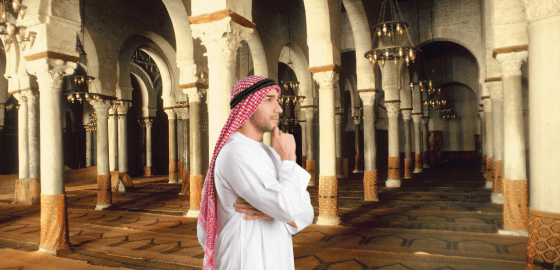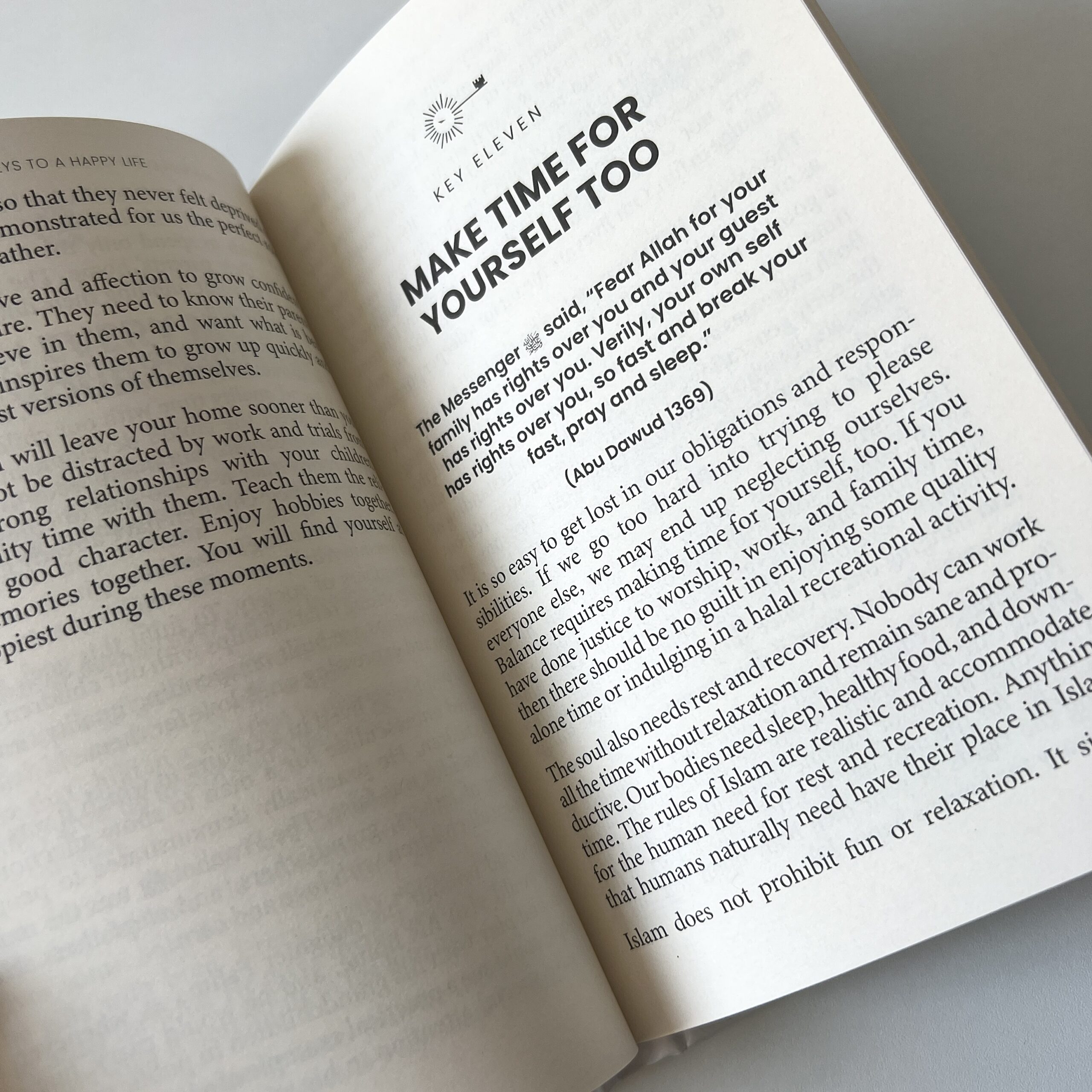A common question we receive is: how do we balance contentment and ambition? Both are positive qualities that are essential for a happy and successful life, yet they seem to contradict each other. Contentment teaches us to be satisfied with what Allah has provided, while ambition drives us to seek more and work hard to achieve lofty goals. On the surface, these values may seem contradictory, yet Islam encourages us to embrace both.
Contentment: A Pillar of Faith
Contentment is a fundamental aspect of purifying the soul. Without it, greed can take hold, leading to a constant sense of dissatisfaction, no matter what we achieve. Numerous hadiths remind us of the virtues of contentment and warn us of the dangers of greed.
The Prophet ﷺ said, “Wealth is not in having many possessions. Rather, true wealth is the richness of the soul.” (Ṣaḥīḥ al-Bukhārī 6446, Ṣaḥīḥ Muslim 1051)
He ﷺ also said, “Whoever among you wakes up secure in his property, healthy in his body, and with his food for the day, it is as if he were given the entire world.” (Sunan al-Tirmidhī 2346)
The Prophet ﷺ also warned us against greed in various hadiths, including:
“If the son of Adam had two valleys full of wealth, he would desire a third. Nothing will fill his belly except the dust of the grave, but Allah relents to those who repent.” (Ṣaḥīḥ al-Bukhārī 6436)
“Beware of greed, for it destroyed those before you. It commanded them to be miserly, and they obeyed. It commanded them to sever family ties, and they did so. It commanded them to behave wickedly, and they did so.” (Abu Dāwūd 1698)
Ambition: A Call to Hard Work
How do we differentiate between ambition and greed? Is it wrong for a believer to aspire to a higher standard of living, aim for a promotion, or buy a better home? While Islam teaches contentment, it does not discourage ambition or setting goals. In fact, Islam encourages us to strive for excellence (Ihsan) in everything we do.
Ambition is not contradictory to contentment, but rather complements it. Contentment comes after striving—after working hard and doing our best, we should be content with whatever Allah has provided for that day.
In the hadith of Ihsan, the Prophet ﷺ said, “Verily, Allah Almighty is excellent and loves excellence.” (Al-Mu’jam al-Awsaṭ 5884)
Islam teaches us to aim for excellence in every aspect of our lives—whether it’s in our work, finances, or family life. We should strive to be the best version of ourselves, working hard towards noble and meaningful goals. However, contentment should come after this effort—being satisfied with a hard day’s work, even if the results aren’t what we had hoped for. Contentment means being happy, even when we don’t achieve all our goals.
Practical Tips for Balancing Contentment and Ambition
So, how do we achieve this balance? Here are some practical tips:
- Practice Gratitude: Every day, focus on the blessings you have and thank Allah for them. By appreciating what you have, you’ll find contentment even in difficult times. There is always something to be grateful for.
- Redefine Success: Success doesn’t have to mean the same thing to you as it does to others. In modern society, success is often measured by wealth and fame, but these aren’t necessarily the metrics for a believer. Redefine success based on your relationship with Allah, your family, and your community. As the Prophet ﷺ said, “Whoever wakes up secure in his property, healthy in his body, and has his food for the day, it is as if he were given the entire world.” (Sunan al-Tirmidhī 2346)
- Set Realistic, Meaningful Goals: Have goals that are both achievable and noble, pleasing to Allah, and beneficial to the Ummah. Working towards such goals will bring satisfaction, even if you don’t achieve all of them. The journey itself will be rewarding.
- Enjoy the Journey: Don’t tie your happiness to end results. Some people believe they’ll only be happy when they finish school, get married, or retire, but this mindset often leads to perpetual dissatisfaction. Find joy in the process, the hard work, and the small victories along the way.
- Be Flexible with Your Strategies: Life is not a straight path. When pursuing a goal, you will encounter obstacles. These challenges shouldn’t curb your ambition; instead, adjust your strategy and find new ways to achieve your goals.
- Avoid Comparing Yourself to Others: Focus on your own blessings and goals. Everyone’s journey is different, with unique successes and challenges. As the Prophet ﷺ said, “Renounce what people possess, and people will love you.” (Sunan Ibn Mājah 4102)
- Prioritize Faith Above All: A key to balance is prioritizing Islam above everything else. When you focus on Allah’s pleasure, you will always find reasons for contentment. With this mindset, you’ll find Allah assisting you in reaching your goals and granting patience during trials.
- Be Satisfied with Hard Work: At the end of the day, all that matters is that you tried your best. Set your goals, work hard, and be content with what you achieved. Don’t focus on what’s beyond your control; focus on what is written for you, and you will find the balance between contentment and ambition.
Conclusion
Balancing contentment and ambition is essential for a fulfilling life. While contentment teaches satisfaction with what Allah has provided, ambition drives us to strive for excellence and achieve meaningful goals. Islam encourages both—hard work and contentment—emphasizing that contentment comes after striving. True contentment guards against greed and dissatisfaction, while ambition pushes us to be the best version of ourselves.
By practicing gratitude, redefining success, setting realistic goals, and finding joy in the journey, we can achieve this balance. Prioritizing faith and avoiding comparisons with others further helps align our ambition with spiritual contentment. We ask Allah to accept our efforts, guide us to balance, and protect us from greed, laziness, and jealousy.
Learn more with our self-help bundle, on sale here.






